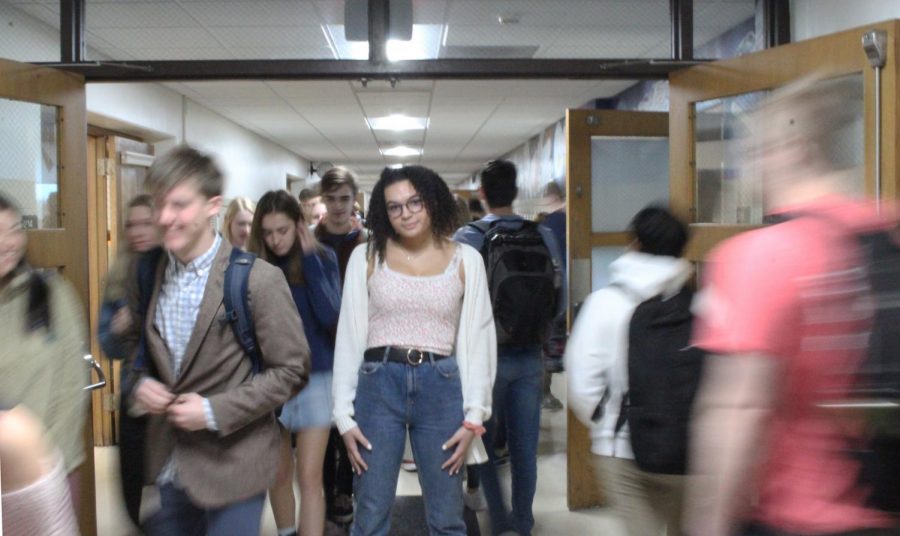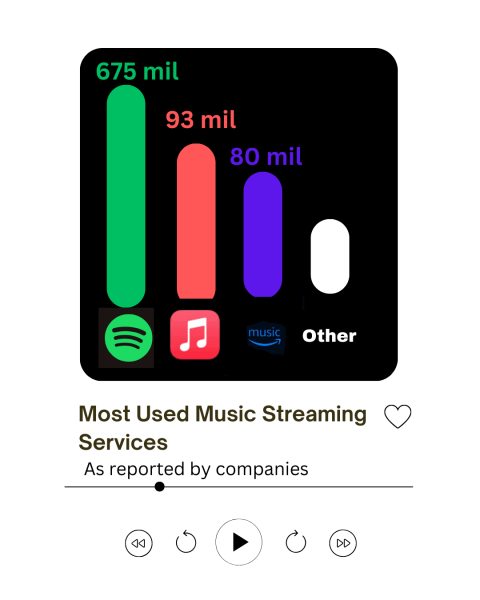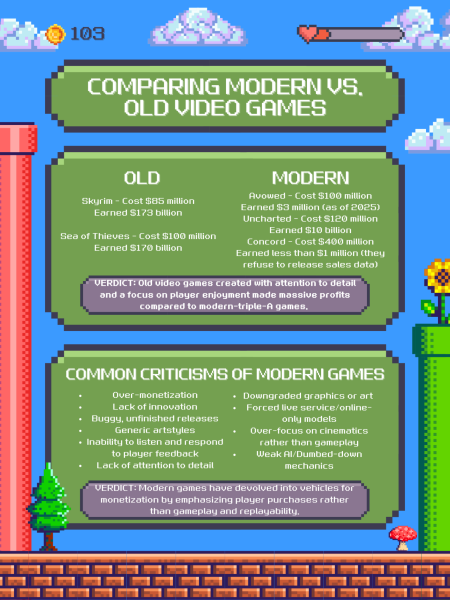Off-White: What it’s like being a mixed-race student at LHS
It doesn’t take long for anyone to realize that a majority of the student body at LHS is, well, not a minority. While I am extremely lucky to be able to attend LHS and to be a part of this tight-knit community, the predominantly white population creates a fish-out-of-water situation for most people of color (POC) who attend this school, including me. I don’t speak for all POC when I say this, but it can get tough day after day, being the only non-white student in a given room. For me in particular, being both black and white, it’s given me a very atypical perspective, as well as a pretty uncommon high school experience, especially compared to most students here.
One of my biggest struggles of growing up in Libertyville, believe it or not, is my hair. My hair has a very unique, multi-cultural texture (meaning the texture is a combination of more than one ethnicity), so I don’t exactly have access to a network of people who are familiar with hair like mine. While this seems minor, you’d be surprised by how many daily conversations of mine involve either my hair routine, how often I brush it, pulling and petting of my hair or all of the above. This is all with good intent, but it can really get exhausting having such an attention-drawing feature attached to me at all times. Not to mention, having such a light complexion for a black girl makes my hair one of the only things that makes me look ambiguous, or at least distinctively non-white. I’m neither fully black nor white, and it shows. To me, this is a good thing, because it makes me stand out for having such a unique look. Yet looking so “exotic,” as a peer once described me, comes with having some differences that are not always favorable.
Not surprisingly, being two or more races is less common than being any one race, according to Data USA. Even though we make up such a small demographic, I know a few other mixed-race students at the school, and there’s one common dilemma we often share — where do we fit? I have a great group of friends, all of whom are white, and it can be hard not to be identified as the “black friend.” Sometimes I feel like a spokesperson representing the entire black community, being one of, if not the only, colored friend they have, which can be a heavy weight to carry. On the other hand, whenever I find myself in a group of mainly African Americans, I’m the “white girl.” My very light skin tone, as well as some of my mannerisms, make me stand out in the black community as well. I’ve been told by some of my black peers that my voice, dialect and style reflect those of any other white girl. I’d be lying if I said this dynamic hasn’t caused a minor identity crisis as I grew up, and I don’t think that this experience is very different from other mixed kids.
With the lack of a large black population in Libertyville— the school is 91.7 percent white, I have little to no exposure to the whole African-American part of my ethnicity. I haven’t been properly immersed in much black culture, and instead, I’ve assimilated into this mainly white community; I’m missing out on an entire half of my identity. I feel like I’m no more connected to my black culture than any of my white peers. For example, I learned only a few weeks ago in class about “Juneteenth,” a holiday that commemorates the abolition of slavery throughout America. My teacher told the class that Juneteenth is a major holiday and a very important tradition for the African American community. I am still disappointed about this because this great holiday is apparently a significant part of my culture, and I had never even heard of it. That was when it hit me that if I want to become more involved in black culture, I was going to need to take matters into my own hands. I’ve gradually become more and more aware of the gaps in my knowledge of my black culture and how to fill those gaps. I am finding every day that growing up colored in a white setting presents its personal and social obstacles. And as I adapt to those obstacles, I’m learning that the less I focus on fitting into a certain group, the more accepted I will feel in any demographic.











Jennifer • Feb 16, 2020 at 6:28 am
I can totally relate!
I too am mixed raced, and I grew up in a predominantly white school as well. My hair, when I was young, was a major issue for me as well.
Now, as an adult, I have come to realize that having both the black and white perspectives has been a blessing!
Susie Kiefer • Feb 14, 2020 at 8:53 pm
Thank you for sharing your perspective with all of us! You helped people connect and understand if only for a fraction of a moment in time. Beautifully written! I wish you well on your journey of discovering all of what makes you you! Thank you!